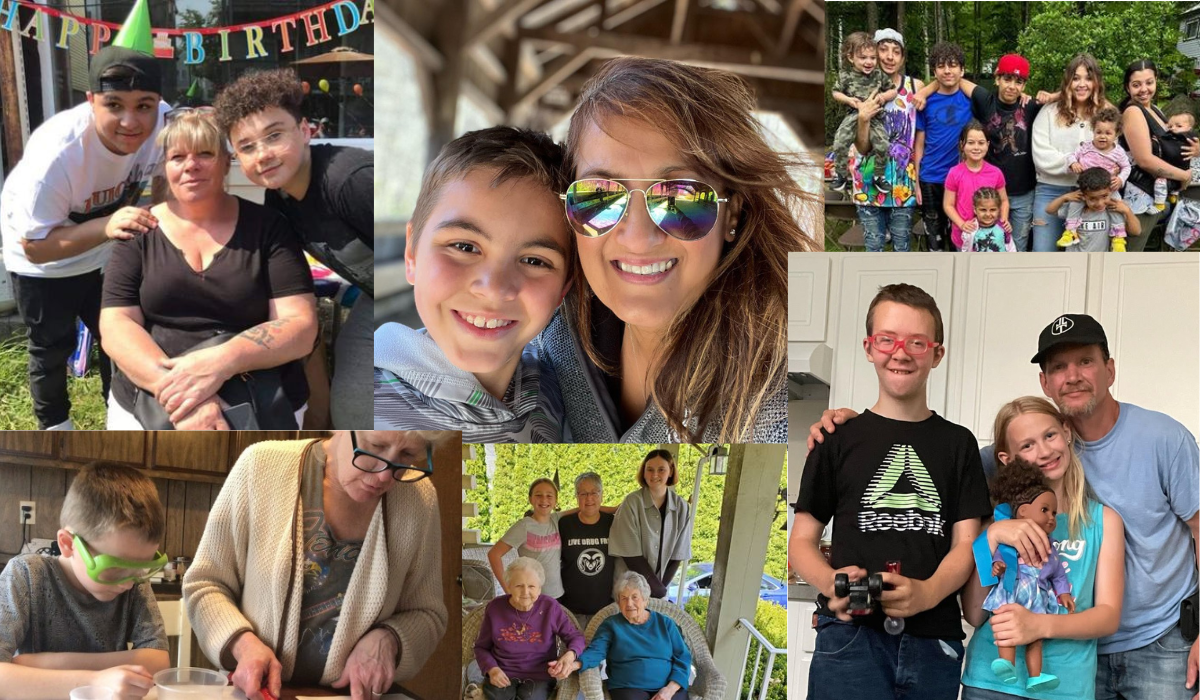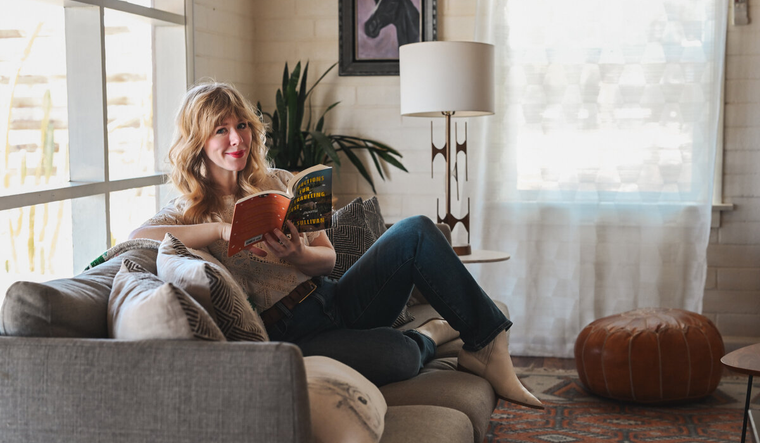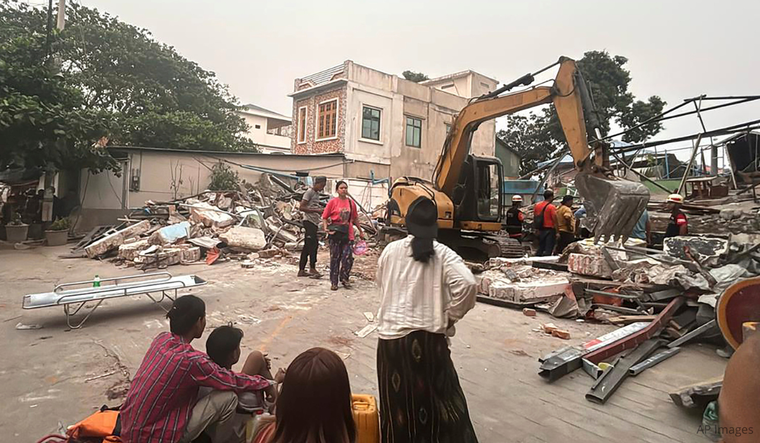It’s Grandparents’ Day! The Role Has Changed and Here's What It's Really Like for the Millions Who Are on the Frontlines
A grandmother in Alabama awaits her two young granddaughters to come home from school. A grandmother in Georgia rushes from work to the pick-up line to fetch her grandson. A non-profit organizer in New Hampshire fields emails from grandparents requesting financial support to help raise their grandkids.
In America, grandparents raising grandkids is widespread. More than 2.3 million grandparents still in the workforce are actively raising—living with and caring for—grandchildren under 18, according to the most recent Census data. That number rises when you include grandparents who are retired. The prevalence is staggering, and the reasons are grave: addiction, mental health issues, death, and incarceration are a handful of the drivers of why grandparents take on the role of parenting again.
"Our growth says it's rising," says Denyse Richter, founder of Step-Up Parents, a New England non-profit offering financial assistance to grandparents and other caregivers raising kids whose parents are victims of substance abuse. Since Step-Up's start in 2019, Richter says they've "grown exponentially every year."
The Sunday Paper wanted to dig deeper into this critical issue and discover what these grandparents want the world to know. Three people—grandmothers Katrena Waites and Hasnah Pearce and advocate Denyse Richter— took our call. As their insights prove, there is heartbreak and joy to this heroic work and a critical need for greater awareness.
Katrena Waites
Katrena Waites faced the unimaginable six years ago: Her son died, leaving behind a wake of grief and a girlfriend who was six weeks pregnant with twins. In the years since, Waites and her husband have been granted custody of their son's daughters, who are now six. She shared her story with us from her home in Alabama.
So you are now sole parents to your late son's two daughters.
Yes. Our world stopped when we got the girls. They are a blessing to me. I always say that if I didn't have them, I might be lying beside my child.
We went through the custody period in court. Finally, their mother gave in and said to us, "You're doing a much better job than I am," and she gave up her rights. I commend her for doing so.
I will tell you, as a grandparent, raising your grandkids is very tough because you have to be a mom and grandmother. It is hard.
You started an online support group, Grandparents Called to Parent. Tell us about that.
That is my passion. We're there to support one another, as this can be very hard. I drop information in there, including parenting tips and where to go if you need to get emergency custody of your grandchildren. I want to help in any way.
When I first got the girls, I was still working, so I had the financial means. But so many grandparents do not; they need to figure out another way to earn some income. Our group helps them with that, too, whether it's finding affiliate marketing, network marketing opportunities, or a part-time job—anything they need.
What do you want the world to know about the work you and other grandparents raising grandkids do?
There are not a lot of resources out there for us grandparents raising our kids. That is why I want to offer these grandparents a safe place to come and gather. There are lots and lots of grandparents raising their kids. This is not a new thing. Some of us have lost our kids. Others are raising their grandkids because of drugs or a lack of care. Whatever the situation may be, there are lots of us. We need a safe place to fall where we can get information, and that is what I am doing with my group. It is safe and private because we're dealing with these very private issues.
I would love to start a community in my area where we could meet in person, have coffee, and discuss things. There needs to be more of that.
Visit Grandparents Called to Parent to learn more.
Denyse Richter
The impetus for the non-profit Step Up Parents came when Denyse Richter saw firsthand a grave need. Her good friends were dealing with their daughter's addiction and raising her infant daughter, their granddaughter. "Their daily life was just mind-boggling," Richter tells us. "With everything they were dealing with, there were little available for resources." Richter founded the organization to help financially support grandparents and other caregivers in similar situations as her friends'. She spoke to us more about who Step Up Parents has helped and the wider issue.
Tell us more about Step Up Parents.
You can imagine this is difficult for anyone, but it is very difficult if you're older, living on a fixed income, and suddenly faced with raising children again. So many of these people are unprepared for it. I'm not a social worker, but I understand the financial need.
Our mission is specific to helping caregivers who are raising children whose parents are impacted by substance abuse, but at some point, we hope to expand it to include mental health, as well, because that's a big piece of this.
We're based in New Hampshire and just expanded into southern Maine. We're 100 percent privately funded. Thankfully, we've been able to fund every request that meets our mission, so we've never turned anyone away. We've helped over 400 families and impacted over 700 kids. And we've given over $225,000 in assistance.
The issue of grandparents raising their grandkids is nuanced and widespread. What do you want people to know specifically about the issues you're seeing and the need for support?
Substance abuse issues are not under control, so unfortunately, this is not an issue that's going away. In our work, these families have taken these kids for the long haul until they're 18. So we help them once a year. It may be a little bit, but they know they have a resource at least once a year. These people are so appreciative to know someone has thought about them and that someone else knows how hard it is. When we help them, we send them a note saying, 'We appreciate everything you're doing.' They want to be heard and validated. They're taking in these kids, so their life as they knew it is over. If the kids are going to school, the grandparents may be older and unable to connect with the younger parents. Often, they're between two worlds.
Another issue, sadly, is many of these kids are dealing with mental and physical issues. These are children requiring a lot of mental health and physical health appointments because they have been traumatized and/or exposed to drugs in utero. So, the circumstances they are getting these children under are extremely difficult. And many of these grandparents are also still actively dealing with their children's addiction issues.
Lastly, addiction is a family disease, and these kids and their caregivers are the collateral damage. Unfortunately, we have limited resources in this country, and it goes towards the person struggling with addiction, which I understand. But I wish the families were more supported. These grandparents and other kinship parents are not foster parents, so they're not financially supported like a traditional foster family. This entire population is growing, and nobody seems to know how to support them.
What has surprised you most in doing this work?
I'm always shocked because I thought I might come across many bitter people who think, I'm doing this because I have to. That has yet to be the experience. They may think I had to step up for my grandkids. But still, these kids mean everything to them, and there's no anger or resentment of how am I here? These grandparents are not complaining, from my experience. They’re amazing.
Visit Step Up Parents to learn more and donate.
Hasnah Pearce
"You're never prepared for something like this." Hasnah Pearce says, recounting the night her 30-year-old single-mom daughter, Tamara, died in a car accident. "There was a knock at the door, and standing there was a police officer, and behind him was a chaplain officer. I screamed my grandson's name." Pearce gained custody of her daughter's three-year-old son and has been raising him ever since. She shares with us what she wants people to know about the joy and hardship of raising a grandchild. "That changed our life that night."
You are passionate about helping grandparents who are raising their grandkids, like yourself. What is top of mind for you right now?
The average age of a grandparent raising a grandchild in America is the mid-50s, but many are much older. And many have retired. A lot of these grandparents are raising more than one grandchild. Many are living on Social Security, emptying their bank savings and 401Ks.
I've talked to so many grandparents. They reach out via my TikTok or Instagram. I had a friend message me last week, and my heart breaks for her. She lost her daughter to a heart attack, and now she's raising her nine-year-old. She said, "I am broken." This is the story of so many grandparents today. They don't know who to turn to. They don't know where the resources are going to come from.
I talk with grandparents about the need to be intentional for the children's mental health. They must try to get these kids mental health help to walk through their grief. These kids are experiencing a sense of abandonment and rejection from losing their parents.
What do you wish more people knew about when it comes to this issue?
No one is talking about this but us. There is a lot of despair out there with grandparents. I feel blessed that I am financially able to care for my grandson and that I was able to put my grandson in emotional counseling for years. But there are so many grandparents out there who cannot do this.
Consider the amount of money allocated per child for foster care. When you combine that with however many grandchildren are being raised by grandparents, it is mind-blowing. Parents don't want kids to be put in foster care because they may have family available to care for them. So why can't some money going into the system go to us? Why can't there be laws that support and thank the grandparents for keeping the children out of the foster care system, which can drain money from state and federal funds? I wish that would be recognized. I wish there were support.
Anything I can do to help these grandparents, I will do it.
Follow Hasnah Pearce on TikTok to learn more.
Please note that we may receive affiliate commissions from the sales of linked products.



